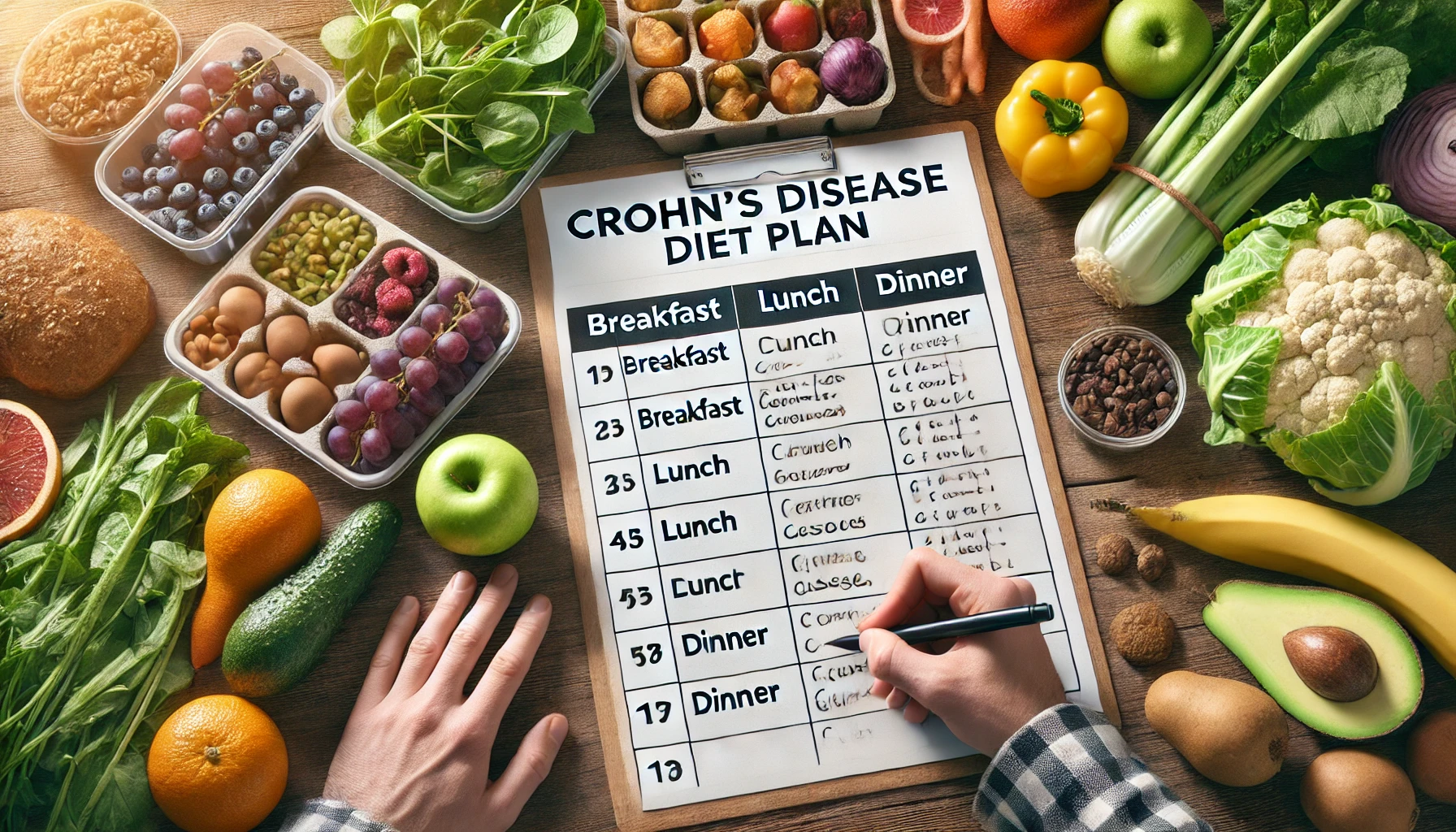This post was written with Consensus AI Academic Search Engine. Crohn’s disease is a chronic inflammatory bowel disease that can affect any part of the gastrointestinal tract. Managing Crohn’s disease often involves dietary adjustments to help control symptoms and maintain nutritional health. This article will explore foods to avoid, the benefits and considerations of a low-residue diet, and other dietary strategies for managing Crohn’s disease.
Foods to Avoid
While there is no one-size-fits-all diet for Crohn’s disease, certain foods are commonly known to exacerbate symptoms in many patients. It is essential to identify and avoid these trigger foods to manage the condition effectively.
High-Fat Foods
Diets high in animal fats have been associated with increased inflammation and a higher risk of inflammatory bowel diseases (IBD)6. Patients are often advised to limit their intake of saturated fats found in red meat, butter, and processed foods.
Dairy Products
For those who are lactose intolerant, dairy products can cause significant discomfort, including bloating, gas, and diarrhea. Eliminating or reducing dairy intake can help alleviate these symptoms4.
High-Fiber Foods
During flare-ups, high-fiber foods can aggravate symptoms by increasing bowel movements and causing abdominal pain. Foods such as raw fruits, vegetables, nuts, seeds, and whole grains should be limited during these periods4.
Caffeine and Alcohol
Both caffeine and alcohol can irritate the gastrointestinal tract and worsen symptoms. It is generally recommended to avoid these substances to maintain gut health4.
Low-Residue Diet
A low-residue diet is often recommended for Crohn’s disease patients, especially those with stricturing disease, to reduce the risk of bowel obstruction. This diet limits the intake of high-fiber foods and other substances that leave a significant amount of undigested material in the colon.
Benefits
The primary benefit of a low-residue diet is the reduction in bowel movement frequency and volume, which can help manage symptoms and prevent complications such as intestinal obstruction5.
Considerations
While a low-residue diet can be beneficial, it is often nutritionally inadequate and may negatively affect the patient’s overall nutritional status. It is crucial to ensure that the diet is balanced and provides sufficient calories, protein, vitamins, and minerals5.
Other Dietary Strategies
Balanced Diet
A balanced diet that includes adequate calories, protein, vitamins, minerals, and fluids is essential for managing Crohn’s disease. Individual nutritional needs can vary, so it is best to work with a Registered Dietitian to tailor a diet plan that meets specific requirements2.
Low-FODMAP Diet
The low-FODMAP diet, which restricts fermentable oligo-, di-, mono-saccharides, and polyols, has shown significant efficiency in reducing gastrointestinal symptoms in Crohn’s disease patients. However, more research is needed to establish its long-term effectiveness compared to other diets3.
Enteral Nutrition
Enteral nutrition, involving defined formula diets, has been shown to reduce inflammation and improve nutritional status in Crohn’s disease patients. This approach is particularly beneficial for children and those preparing for surgery5 6.
Vitamin and Mineral Supplementation
Supplementing with vitamins and minerals, such as vitamin D and omega-3 fatty acids, can help manage inflammation and improve overall health. However, omega-3 supplements have not been shown to decrease the risk of relapse in Crohn’s disease patients6.
Conclusion
Managing Crohn’s disease through diet involves avoiding trigger foods, considering a low-residue diet during flare-ups, and ensuring a balanced intake of essential nutrients. Working with healthcare professionals, including dietitians, can help tailor a diet plan that meets individual needs and improves quality of life. By making informed dietary choices, patients can better manage their symptoms and maintain their overall health.
